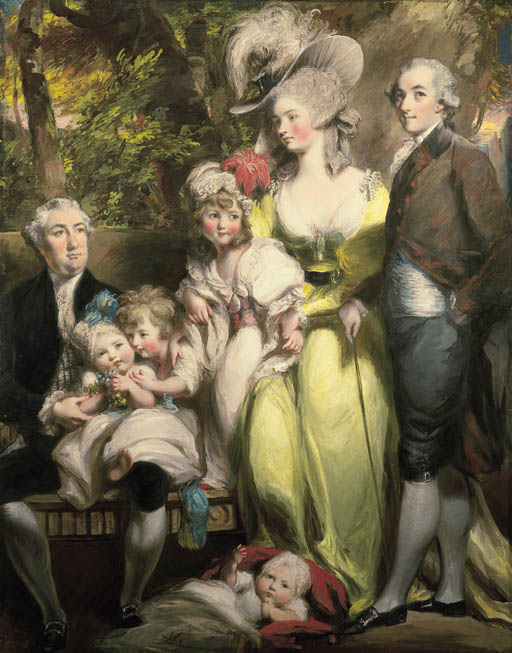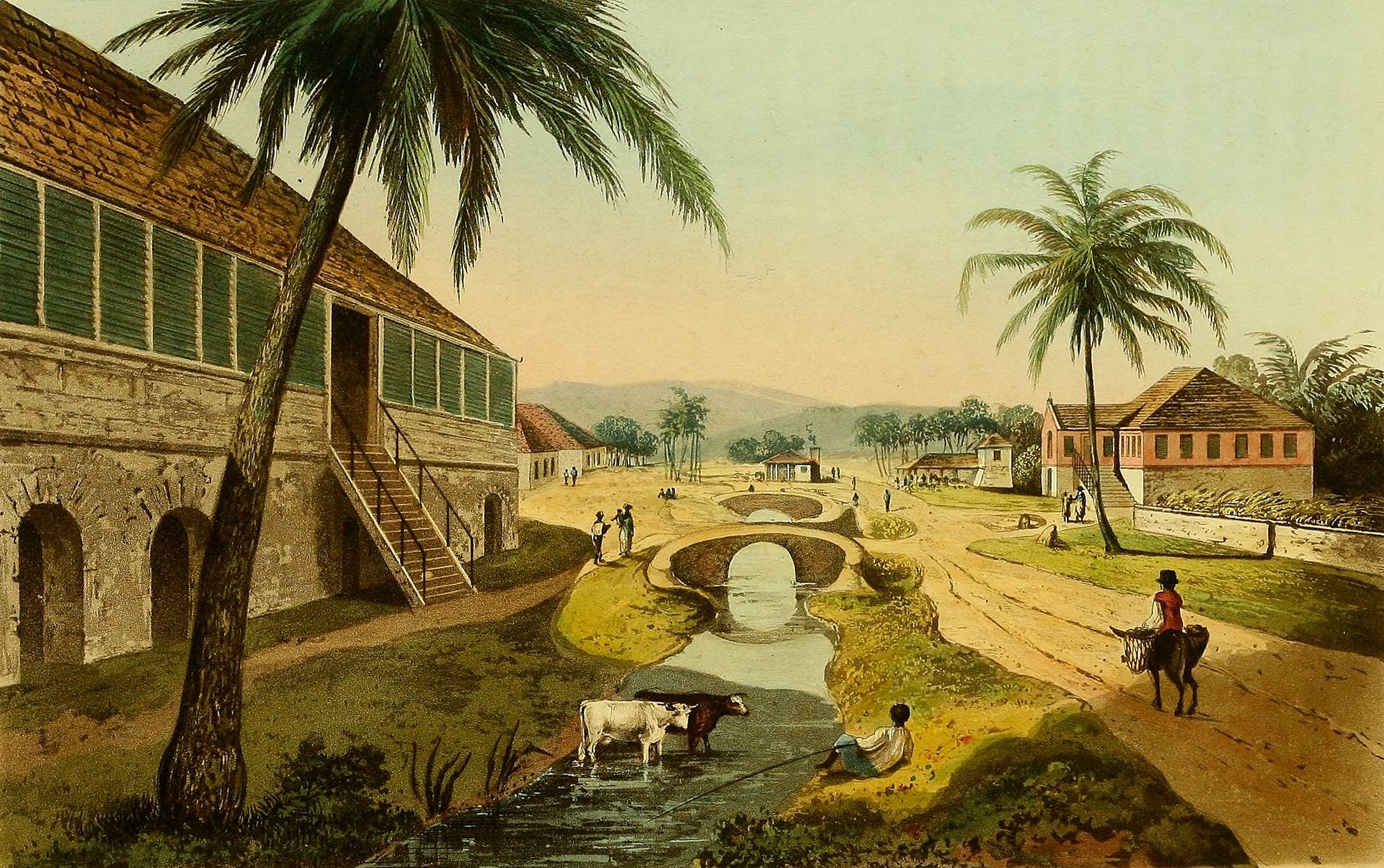
Stephen Mullen
Missed Part 1? Read it here!
I was a reluctant and unintentional scholar of Henry Dundas.
Whilst examining the West India Committee records in the University of the West Indies, St Augustine in Trinidad in 2016, I stumbled across the Minutes of the Board of Commissioners for the Issue of Exchequer Bills, the body established to distribute Government loans after the Fedon Uprising of 1795-6 had decimated the island of Grenada in the south-east Caribbean. In effect, the loans kickstarted the slave economy and as much as one-third went to Scottish firms. Henry Dundas acted as guarantor for one payout of £10,000 to the firm Alexander Houston & Co. Since William McDowall, MP for Glasgow Burghs was a co-partner and part of Dundas’ patronage network, the collaboration made sense. At the time, this did not seem like a find of any great significance: it simply provided further evidence of Dundas’ well-known alliance with West India elites. As the debate over how Dundas was memorialised unfolded, however, I watched the arguments with much interest.
Around 2018, I began systematically researching Henry Dundas’ role in the abolition debates, testing whether he cynically prolonged the slave trade for vested interests or as a pragmatic but sincere abolitionist easing its passage. I read dozens of parliamentary contributions over fifteen years recorded in Hansard, and cross-referenced with evidence from holdings in Scottish archives and libraries, especially the Dundas family papers. These were purchased by The National Records of Scotland for £1.35m in 2012, and so were open to historians. I examined Dundas correspondence in the Weston Library, Special Collections at the University of Oxford and in the John Rylands Library at the University of Manchester. I also examined the records of the London West India Committee in the University of London. The multiplicity of Henry Dundas’ personal and professional connections with the West India interest gradually came into view. Although the ‘interest’ is often misunderstood as a monolithic body, it was in fact a broad coalition of merchants, planters, agents and MPs who joined in an often unsteady alliance to oppose the threat of abolition. The metropolitan West India interest coalesced around the Society of West India Planters and Merchants which formed in 1775 (joining two previously separate societies). In 1782, this came together as the London West India Committee – which was dominated by Jamaica merchants – which had had strong representation in the House of Commons via the parliamentary West India interest. Colonial planters had different aims from metropolitan merchants – conflict ensued by disputes over, for example, the terms of sales, credit and repayment. These disagreements often had a wider imperial dimension which manifested during the ‘gradual abolition’ era. For example, the parliamentary West India interest approved amelioration after 1797, whilst powerful West India assemblies steadfastly refused to concede such strategies due to perceived infringement upon colonial affairs.

Henry Dundas, therefore, had a complex role placating colonial assemblies and planters as well as metropolitan merchants and the parliamentary West India interest. From April 1792, Dundas demanded that colonial assemblies should have a voice in parliamentary debates over abolition, a position he never deviated from, and one they would never have accepted. Historian Douglas Hamilton (2005) noted Dundas’ role in dispensing patronage amongst Scots in the West Indies, and from early 1792 Dundas maintained both a social and professional relationship with Simon Taylor. A powerful Jamaica planter, and second-generation Scot, Taylor was involved with the London West India Committee. Around 7 April 1792, Dundas privately discussed a strategy with members of the ‘Sub Committee of West India Planters & Merchants appointed to oppose the abolition of the slave trade’. London West India merchant George Hibbert discussed the Dundas ‘negotiation’ with Simon Taylor and viewed it as a ‘means of escaping our entire destruction’. Bishop Beilby Porteus, bishop of London (1787–1808), who was present in the House of Lords, later claimed Dundas had agreed with the parliamentary West India interest to delay abolition until 1800 but his inability to implement this timescale in proposals in the House of Commons on 23 April 1792 meant he withdrew from proceedings. When looking back in March 1796, Charles James Fox noted that when ‘Dundas…proposed his plan of gradual abolition’ [i.e. on 23 April 1792] he gained not ‘one proselyte among the West Indians’ (since Porteus inferred the metropolitan interest were amenable to an eight-year delay, Fox was referring to colonial planters). In any case, Dundas’ proposals were modified and it was the House of Lords that blocked any form of abolition in the summer of 1792.
For the rest of his political career, Henry Dundas noted that the slave trade was morally wrong whilst he was anti-abolition in practice, often collaborating with different strands of the West India interest. In 1795, Dundas was described as a ‘promoter’ of Government state aid provided to merchants and planters to kickstart the slave economy of Grenada in the southeast Caribbean. He later spoke in defence of the West India planters in March 1796, and, according to historian G.M. Ditchfield, mobilised Scottish votes against immediate abolition again (as he had in 1791). The Society of West India Planters and Merchants thanked Dundas in March 1796 for blocking immediate abolition and he was later consulted on a strategy proposed by absentee Jamaica planter and MP Charles Ellis. This strategy conceded the necessity of improving the conditions of the enslaved on plantations (described as ‘amelioration’) with the intention of delaying the abolition of the African slave trade as long as possible. The strategic disagreements between the parliamentary West India interest and colonial assemblies was never clearer than on this issue: the former accepted amelioration to delay abolition, whilst the latter opposed both. According to historian Dale Porter, the disingenuous West Indian strategy discouraged abolitionist legislation up to 1804. After Dundas drifted out of political life, the Abolition of the Slave Trade was enacted in 1807.
Henry Dundas was praised by a succession of slave traders, West India merchants and colonial agents and planters for his role in delaying abolition, whilst he was simultaneously criticised by abolitionists in life and death. In March 1795, he was described as ‘the disguised oppressor of the human species’ by a pseudonymous Howard, who also claimed Dundas operated on behalf of the West India interest (a claim corroborated in Jamaica agent Stephen Fuller’s correspondence). In life and death, prominent abolitionists – by Thomas Clarkson (1808), William Wilberforce (1823), and the Life of Wilberforce (1838;1839) co-edited by Wilberforce’s sons – concluded Henry Dundas was one of the main barriers to abolition. Indeed, William Wilberforce described Dundas as the ‘avowed advocate of the colonies’. Nevertheless, the abolitionists, nor I, believe that gradual abolition was an executive decision. Dundas used his considerable influence to implement Government strategies and the will of British parliamentarians more broadly.
Read
About the author
Dr Stephen Mullen is a historian of slavery and its aftermath in the British Atlantic world, with a particular focus on Scotland and the Caribbean. He is an alumnus of the Universities of Strathclyde and Glasgow, completing a Ph.D. at the latter institution in 2015. Since then, he has been a Postdoctoral Researcher and Lecturer in History at the University of Glasgow. Stephen’s research has focused on the social and economic consequences of Atlantic slavery in a British-Atlantic framework. He was a Postdoctoral Researcher on the Leverhulme project ‘Runaway Slaves in Britain: bondage, freedom and race in the eighteenth century’, and the principal researcher and co-author of the report ‘Slavery, Abolition and the University of Glasgow’ (2018), which led to the sector-leading Reparative Justice strategy. A monograph, The Glasgow Sugar Aristocracy: Scotland and Caribbean Slavery, 1775-1838, is forthcoming with the Royal Historical Society/Institute of Historical Research flagship series New Historical Perspectives published by University of London Press.





